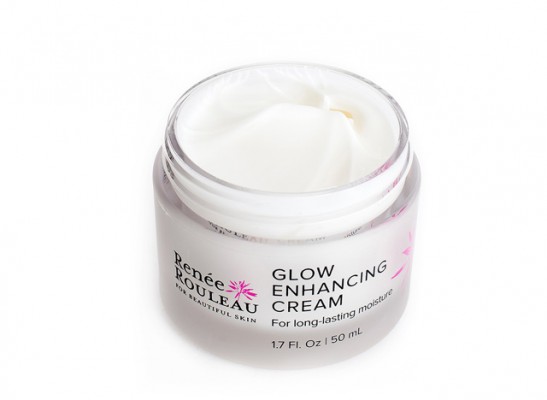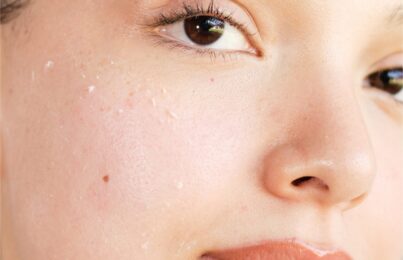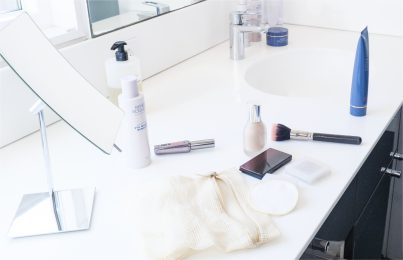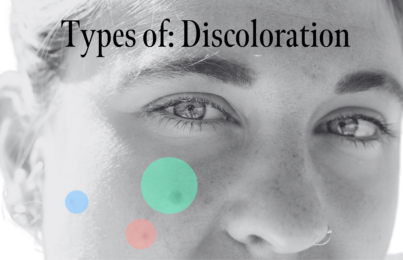Updated 3/27/15. These common skin myths might come as a surprise, so be sure you’re not making these mistakes.
Skin Myth #1 “I don’t need to wear sunscreen during the day because I work inside an office.”
False. If your skin is exposed to daylight, even if coming through windows in your office, you still must wear sunscreen daily. There are two types of UV rays given off from the sun.
UVA rays: responsible for changing the DNA in the skin causing premature skin aging and skin cancer, approximate same strength from summer to winter and can penetrate through clouds, windows in your home, office or car. Simply put, these are the true damaging rays.
UVB Rays: responsible for giving the skin a suntan or sunburn, strongest from 10:00 am – 4:00 pm and less strong in the winter and does not penetrate through glass.
If you see the light of day when you are at work, then this daylight is also seeing your skin and causing unnecessary exposure that contributes to aging. Why get UV damage when you’re not even getting a tan for it? Here’s a simple test to see if you’re getting damage indoors.
Be sure to find a sunscreen compatible with your skin type (like Daily Protection SPF 30) and apply it generously 365 days a year, inside and out. Be sure to dust on a SPF mineral powder like ColoreScience SPF 50 Mineral Powder to ensure your skin is extra protected. Be sure to apply it to your neck, too.
Skin Myth #2 The higher the number, the better it is when it comes to the sunscreen.
False. Did you know that an SPF 30 actually offers less than 4% more than an SPF 15? And an SPF 45 offers only 2% more than an SPF 30? So you’re not even getting much more sun protection by going higher in number. The key to the best sun protection has more to do with how often you reapply and how generous you apply it, than what the number is. I recommend a minimum of SPF 30 and a maximum of SPF 50…
Skin Myth #3 “I have broken capillaries.”
False. The term “broken” is very misleading. A broken capillary is caused when you get a bruise, where the capillaries actually break and get damaged. The tiny red lines that are commonly found on the corners of the nose or cheeks are considered permanently dilated capillaries. They are caused by repeated constricting and dilating when they no longer have the ability to contract, and will remain visibly enlarged. The common causes for dilated capillaries are genetics (like an Irish complexion), alcohol, hot showers, frequent nose blowing (allergies), spicy foods, and sun exposure. Read more about how to prevent capillary damage.
Skin Myth #4 The richer the eye cream, the better it is for preventing wrinkles.
False: Most eye creams that are very rich typically contain heavy oils like mineral oil or petrolatum. These ingredients have a hard time getting absorbed, so they sit on the surface and can migrate into the eyes while you’re sleeping causing excessive puffiness in the morning. Not only that, but the heavy oils can weigh down the delicate skin tissue under the eyes resulting in a weakening of elasticity over time. Look for eye creams that absorb, yet still leave the skin feeling moist and supple.
Skin Myth #5 If you’re going to splurge on a skin care product, it definitely shouldn’t be on your cleanser.
False. If someone is going to splurge on a skin care product, it will usually be on a moisturizer. Psychologically, there is something about smoothing on a luxurious, expensive cream that makes us feel like we’re increasing our chances of preventing wrinkles. While this may be helpful, it will do you no good if you’re skimping out on your cleanser and using something of low quality. The reason is because many cleansers use ingredients like sodium lauryl sulfate and ammonium lauryl sulfate which are very drying to the skin. When you wash your face with a drying cleanser, you instantly dehydrate the skins surface and create surface dead cell buildup. Then, your moisturizer has to do repair work and try to rehydrate these newly formed dead cells. Makes no sense, right? Always choose a well-formulated, gentle sulfate-free cleanser and be sure to never use a bar of soap. See my cleanser recommendations.
Skin Myth #6 Using a toner is unnecessary.
False. “I don’t like to use toners because they dry out my skin.” I hear this comment a lot and it’s because most toners on the market contain SD Alcohol 40, which is extremely drying to the skin and will encourage dry skin cell build up. But toners that are alcohol-free (like all of the Renée Rouleau toners) will not strip the skin, and are a crucial step in a good skin care regimen. They remove cleanser residue, chlorine found in tap water, and when the toner is left damp on the skin, your moisturizer will seal in the water and the active ingredient. The result is healthier and more hydrated skin. Read: Five Reasons Why You Need to Use a Toner
Skin Myth #7 Squeezing at a blemish will make it go away faster.
False. The biggest mistake acne-prone skin types make when handling blemishes is to squeeze it the moment it appears and then immediately applying a drying acne spot treatment. The reason why this makes it worse it because it interferes with the natural healing process. Read: The Right Way to Get Rid of a Blemish Fast
Skin Myth #8 “I don’t need to wash my face in the morning because I don’t have any makeup on my skin.”
False. A lot of clients have told me through the years how they don’t understand the point of washing their face in the morning, because the skin is already clean from washing the night before. It’s certainly a valid thought but cleansing your skin in the morning is truly important. The reason why it’s important is because while you sleep at night, your skin is in repair mode and will secrete toxins and sebum which can prevent your daytime products from working most effectively. When you wash your skin in the morning, you’re removing toxins and sebum and you’re also removing your nighttime products so that your daytime products (particularly SPF moisturizer) can get into the skin better, since it will have a clean slate.
Also, the nighttime products that are on your skin often times contain ingredients that are suitable for the night, not the day, such as acids and retinol. These should be cleansed from the skin to avoid any reactions or potential irritation. While washing your face in the morning may seem like just another tedious task in your daily routine, know that it is a key step in ensuring healthy, beautiful skin.
Skin Myth #9 Cleansing wipes are a good alternative to traditional cleansers.
False. In the past few years, cleansing wipes have become popular with people as a way to quickly and easily wipe makeup off their skin without having to deal with water or washcloths. You simply wipe and go. While they are convenient to use, are they good to use on your face? No. I believe they are not the best choice for healthy skin because cleansing wipes don’t effectively clean the skin. Instead they just smear dirt, bacteria, oil and makeup across it. Essentially it is like applying cleanser to your face with soap and then not washing it off. The cleansing agents are designed to break down debris but it’s the rinsing action from water that actually removes it. As mentioned above, I recommend using a gentle, sulfate-free, low-foaming cleansing gel or a lightweight cleansing lotion to wash the face. Then follow it by wiping the skin with a baby washcloth or facial sponge. Clean skin is healthy skin. Be very meticulous about cleaning a day’s worth of makeup, dirt, and bacteria from your skin so you’ll get the best results from serums and moisturizers applied afterwards. If you really must use a wipe, limit their use to rare occasions. No wipe will ever be as effective as a proper cleanse.
Note: For removing eye makeup, like eye shadow and mascara, wipes are okay to use. Since you should wash your face with a gel, lotion of foaming cleanser, using water to rinse it off will wash way away any residue it might leave around the eye area. And remember, as with any eye makeup remover, leave it on the eyes for 20 seconds to dissolve the makeup. This avoids any unnecessary rubbing and tugging that can irritate they eyes and put wear and tear on the skin’s elasticity.
Skin Myth #10 Natural ingredients are better for sensitive skin.
False. When choosing skin care products, is “natural” really better? Will natural products be gentler and less harsh? My answer is not necessarily. This is simply because there is no legal definition of “natural.” Different companies have their own definitions of what this word means for their products (as I do with my skin care line) and these translations can vary greatly from company to company. Therefore, the word “natural” is too vague of a description for products. The better choice when choosing products for sensitive skin is to look for the following words:
· gentle (This won’t necessarily guarantee you won’t have a negative reaction, but it does imply that it may avoid common sensitizers.)
· safe for sensitive skin (This also won’t necessarily guarantee you won’t have a negative reaction, but it does imply that it may avoid common sensitizers.)
· hypoallergenic (While this terminology isn’t used as much these days, it does imply that common sensitizers are avoided.)
· fragrance-free (Synthetic perfumes are the #1 cause of allergic skin reactions, but this indicates that artificial perfumes are not used in the formula. All the Renée Rouleau products do not use artificial perfumes.)
· dye-free (Synthetic dyes are not used because they can be irritating for sensitive skin. All the Renée Rouleau products do not use dyes and synthetic colorants.)
· sulfate-free (Harsh and irritating detergents like Sodium Laureth Sulfate, Sodium Lauryl Sulfate and Ammonium Lauryl Sulfate are not used in the formula.)
So now you know. Follow my expert and truthful advice and your skin will be happier and healthier-looking because of it!
Read: The Five WORST Skin Care Products
Read: What Skin Care Products Should You Take When You Travel?
Read: My Good (And Bad!) Skin Care Secrets
Which skin care products are best for you? See our nine skin types or take the Skin Type Quiz and get products recommended.
Need expert advice from a licensed esthetician? Schedule a virtual consultation to get customized advice in person, over the phone or online via Skype or Face Time.
For more expert advice check out the blog. Also sign up for our skin tip e-newsletter, follow Renée Rouleau on Twitter and Instagram and join the discussion on our Facebook page. You’ll be your own skin care expert in no time. Get the #ReneeRouleauGlow!
Celebrity Esthetician & Skincare Expert
As an esthetician trained in cosmetic chemistry, Renée Rouleau has spent 35 years researching skin, educating her audience, and building an award-winning line of products. Her hands-on experience as an esthetician and trusted skin care expert has created a real-world solution — products that are formulated for nine different types of skin so your face will get exactly what it needs to look and feel its best. Trusted by celebrities, editors, bloggers, and skincare obsessives around the globe, her vast real-world knowledge and constant research are why Marie Claire calls her “the most passionate skin practitioner we know.”




Comments:
thanks; great tips :^)
Posted By: amie |